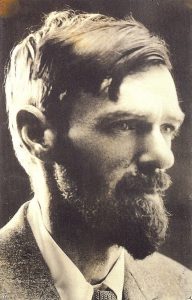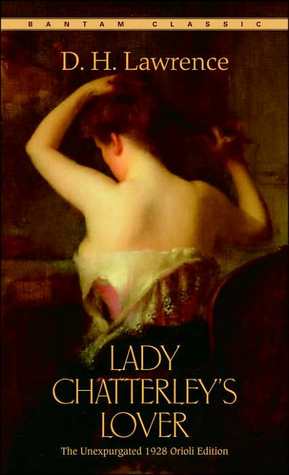 David Herbert Richards Lawrence was an English writer of the 20th century, whose prolific and diverse output included novels, short stories, poems, plays, essays, travel books, paintings, translations, literary criticism and personal letters. His collected works represent an extended reflection upon the dehumanizing effects of modernity and industrialisation. In them, Lawrence confronts issues relating to emotional health and vitality, spontaneity, human sexuality and instinct.
David Herbert Richards Lawrence was an English writer of the 20th century, whose prolific and diverse output included novels, short stories, poems, plays, essays, travel books, paintings, translations, literary criticism and personal letters. His collected works represent an extended reflection upon the dehumanizing effects of modernity and industrialisation. In them, Lawrence confronts issues relating to emotional health and vitality, spontaneity, human sexuality and instinct.
Lawrence’s opinions earned him many enemies and he endured official persecution, censorship, and misrepresentation of his creative work throughout the second half of his life, much of which he spent in a voluntary exile he called his “savage pilgrimage.” At the time of his death, his public reputation was that of a pornographer who had wasted his considerable talents. E. M. Forster, in an obituary notice, challenged this widely held view, describing him as “the greatest imaginative novelist of our generation.” Later, the influential Cambridge critic F. R. Leavis championed both his artistic integrity and his moral seriousness, placing much of Lawrence’s fiction within the canonical “great tradition” of the English novel. He is now generally valued as a visionary thinker and a significant representative of modernism in English literature.
Books

Lady Chatterly’s Lover
One of the major works of fiction written during the twentieth century, D. H. Lawrence’s last novel is an erotic celebration of life. Described by The New York Times as “our time’s most significant romance,” the controversial book was banned, burned, and the subject of a landmark obscenity trial. Printed privately in Florence in 1928, it was not published in Great Britain until 1960, after having long scandalized society with its sexually explicit descriptions of lovemaking, its bold use of four-letter words that were considered vulgar, and a storyline in which the lovers were of different social stations.
Lawrence’s classic tale of love and discovery pits the paralyzed and callous Clifford Chatterley against two major characters: Constance, his wife — a lonely, indecisive woman trapped in a sterile marriage — and her persuasive lover, Oliver Mellors, the robust and blunt-spoken gamekeeper of her husband’s estate. The lyrical tale of their passionate, adulterous love affair has transported generations of readers into a world filled with natural beauty and seething with human emotion. A masterfully written opus, this extraordinary love story is essential reading for any study of twentieth-century literature.
Be still when you have nothing to say; when genuine passion moves you, say what you’ve got to say, and say it hot.
A woman has to live her life, or live to repent not having lived it.
For my part, I prefer my heart to be broken. It is so lovely, dawn-kaleidoscopic within the crack.
I never saw a wild thing sorry for itself. A small bird will drop frozen dead from a bough without ever having felt sorry for itself.

